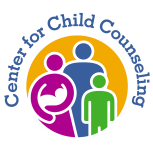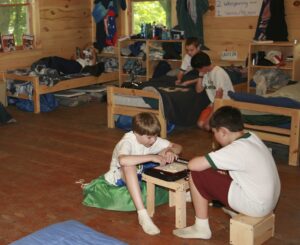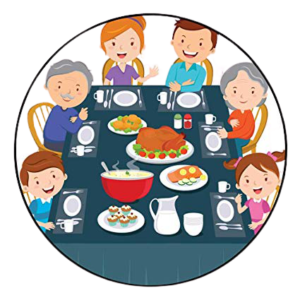One of the most important parts of our job at camp is to keep everyone healthy, in every sense of the word. Camp Akeela prides itself on providing top-notch support and training to our staff to ensure the best summer possible for our campers. Safety is always our number one priority. Our counseling staff constantly monitors how campers are feeling emotionally and our nurses do a wonderful job of making sure everyone is physically well.
CampSafe
Our staff are carefully vetted through a process that includes background checks, reference checks, and interviews. We also wanted to make sure you know that, for the 3rd year in a row, we are using the CampSafe training program, a rigorous abuse prevention curriculum designed by the Center For Child Counseling.
 CampSafe is a proactive approach to child safety which will help support our zero tolerance policy for abuse of any kind – physical, emotional or sexual. The training provides all of our staff with sexual abuse prevention training. Before arriving at camp, each staff member will be required to complete this online course. We will also reinforce the training, in person, as part of our staff orientation at camp in mid-June.
CampSafe is a proactive approach to child safety which will help support our zero tolerance policy for abuse of any kind – physical, emotional or sexual. The training provides all of our staff with sexual abuse prevention training. Before arriving at camp, each staff member will be required to complete this online course. We will also reinforce the training, in person, as part of our staff orientation at camp in mid-June.
For more information, you can visit the The Center For Child Counseling website to learn more about CampSafe. They also provide tips for parents on how to talk with your children about personal safety before they head off to camp, how to recognize signs of sexual abuse, and how to respond helpfully to your child if you have any concerns.
Communal Living
 In addition to this important conversation with your camper, we also encourage you to talk to them about what they can expect from living 24/7 in a communal (bunk) setting. For many of our campers, camp provides a new opportunity to learn how to respectfully share space with peers. Please help your child understand that living at camp means that there will be other people in the bunk changing (before/after a shower or swimming, into pajamas, etc.) It’s to be expected that they will see the naked body of a peer while at camp. You may want to preview this with your child, both to normalize it for them and to help them plan ways to dress and undress in a way that is respectful of other campers in their cabin.
In addition to this important conversation with your camper, we also encourage you to talk to them about what they can expect from living 24/7 in a communal (bunk) setting. For many of our campers, camp provides a new opportunity to learn how to respectfully share space with peers. Please help your child understand that living at camp means that there will be other people in the bunk changing (before/after a shower or swimming, into pajamas, etc.) It’s to be expected that they will see the naked body of a peer while at camp. You may want to preview this with your child, both to normalize it for them and to help them plan ways to dress and undress in a way that is respectful of other campers in their cabin.
We truly believe that going to camp is an amazing opportunity for children of all ages to learn how to live in a safe space in community. These are skills that will be helpful in college and beyond as well!
Healthy Eating
As we all know, part of staying healthy is making good choices about what, when and how much we eat! Some of us struggle with this more than others, but we are all better off when we pay attention to the type of energy with which we’re fueling our bodies. To that end, here are some ways in which we’ve worked with our chefs to make our camp food healthier:

- We no longer serve juice at every meal. Instead, there is orange juice at breakfast and lemonade once a week at cook-out. Otherwise, campers are encouraged to drink water.
- We serve a “sweet dessert” or treat once a day. For example, if there is ice cream for snack, dessert is fruit. Or, if we’re having cake after dinner, snack may be a bag of pretzels.
- Our chefs make almost everything we eat from scratch, which means there is less sugar and fewer preservatives in our food.
- Our salad bar is filled with fresh vegetables and a variety of protein options.
- A bowl of fruit is available to campers throughout the day.
- We aim to keep our dining hall calm and relatively quiet, allowing for a less chaotic environment that is more conducive to conversation and slower eating.
Encouraging campers to make healthy food choices is not always easy and, at Akeela, we’ve made the philosophical choice not to make food a battle. This means that if a camper does not want to try the meal that’s being served and prefers to eat plain pasta, a hamburger, hotdog or PB&J (choices at every lunch & dinner), we will not argue with her. Likewise, if a camper wants more food at lunch, we’ll encourage him to try a salad but will not prevent him from having seconds of the main course.
 As you can imagine, cooking for a community of over 200 people does not allow for individualized meal-planning or some of the foods you may make for your family. While we try to buy local produce, we are unable to source organic food. Moreover, cooking for such a large number of people, many of whom have “particular” tastes, means that we need to keep our menu items relatively simple and pleasing to a wide palate! We know that this means there are a lot of carbohydrates on the menu, which makes portion-control important for those campers who are sensitive to weight-gain. If this is the case with your child, we hope that you will have a conversation with them to discuss ways in which they may be successful. It is also helpful for our nurses to know that this is a concern.
As you can imagine, cooking for a community of over 200 people does not allow for individualized meal-planning or some of the foods you may make for your family. While we try to buy local produce, we are unable to source organic food. Moreover, cooking for such a large number of people, many of whom have “particular” tastes, means that we need to keep our menu items relatively simple and pleasing to a wide palate! We know that this means there are a lot of carbohydrates on the menu, which makes portion-control important for those campers who are sensitive to weight-gain. If this is the case with your child, we hope that you will have a conversation with them to discuss ways in which they may be successful. It is also helpful for our nurses to know that this is a concern.
Our counselors sit with their bunks for every meal which enables them to keep track of any campers who are not eating enough or who are making less healthy choices. They are then able to communicate with the nurses about their concerns. While we model healthy eating and encourage campers to make better choices, we also cannot strictly dictate what a child eats. We want to partner with you to help your child stay healthy in every way at camp and we hope you understand that for the 3 weeks your camper is with us, they may not eat the same way they do at home!
Family Handbook Table of Contents
- About Akeela & About CampGroup
- Camper Travel and Visiting Day
- Packing List & Baggage Shipping Information
- Purchasing Camp Clothing, Prohibited Items & Laundry
- Communication: Mail, Phone Calls & Parent Communication
- Health Care: Medications, Health Communication, Medical Charges, Other Health Concerns
- Safety, Health and Wellness
- Electronics Policy
- Homesickness Prevention
- Success at Akeela
- Camper Code of Conduct
- Additional Activities and Trips
- “Open House” Orientation Day
- Driving Directions



 Check out
Check out